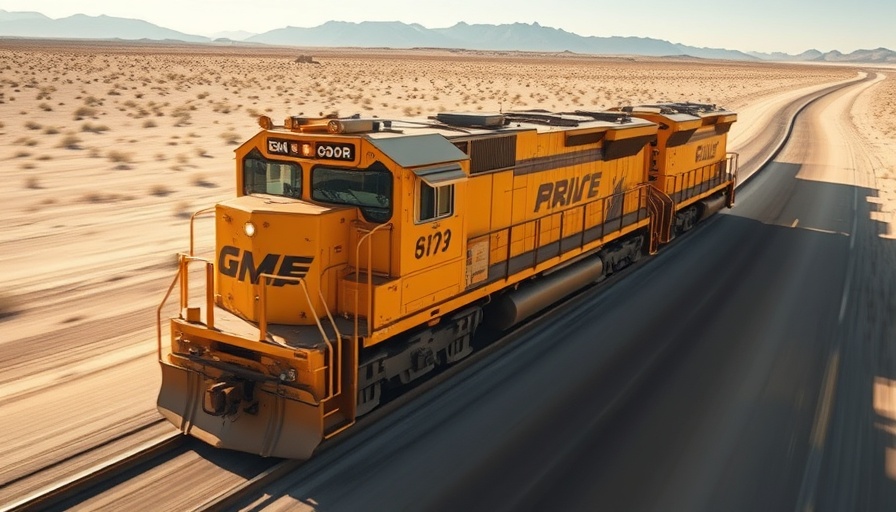
Union Pacific’s Ambitious Move: A New Era in Rail Transportation
This week, Union Pacific announced a staggering $85 billion bid to acquire Norfolk Southern, marking a monumental shift in the landscape of U.S. railroads. The proposed merger aims to create a transcontinental railroad, streamlining logistics and enhancing the efficiency of freight transportation across the United States. This bold initiative resonates well beyond the rail industry; it has the potential to redefine trade networks, boost economic activities, and create thousands of jobs.
The Bigger Picture: Why Now?
As freight transport plays a key role in the U.S. economy, Union Pacific is stepping up its game amid rising competition and shifting market dynamics. With the pandemic exposing vulnerabilities in supply chains, the demand for faster and more reliable transportation options has surged. Consolidating operations through this merger could fortify Union Pacific against current and future economic pressures, ensuring it remains a leader in the industry.
Potential Benefits of the Merger
The proposed merger holds numerous advantages, particularly in fostering economic growth and efficiency. By uniting their rail networks, Union Pacific and Norfolk Southern can optimize routes, reduce transit times, and improve service reliability. Industry experts suggest that this could lead to significant cost savings for businesses relying on rail transport, ultimately translating to lower prices for consumers. Moreover, the merger presents an opportunity to enhance infrastructure investment, unlocking further economic potential.
Concerns and Counterarguments: What Critics Say
While the potential benefits are attractive, critics warn of the pitfalls often associated with large-scale mergers. One significant concern echoes common sentiments about monopolistic practices and reduced competition. Experts argue that if consolidation continues unchecked, it could lead to inflated railway prices and diminished service quality for smaller businesses. Regulatory agencies will have to conduct thorough reviews to ensure fair market practices are maintained and that consumer interests are protected.
The Future of Freight Transport: Predictions Ahead
As railroads continue to evolve, the future of freight transport is teetered with possibilities. If the merger goes through, expectations for enhanced efficiency and modernization within the industry will undoubtedly rise. Furthermore, advancements in technology and sustainable practices, such as electric locomotives and improved cargo tracking systems, could become industry standards, setting a precedent for environmentally-friendly transport solutions.
Job Creation and Economic Impact in Local Communities
Beyond the economic implications for the rail industry, this merger could bring significant job opportunities. With the expansion of operations, thousands of new positions may be created, invigorating local economies and providing needed employment. This potential uptick in jobs offers a silver lining to those who might fear the adverse effects of a monopolistic market—community development coupled with industrial innovation.
Final Thoughts: The Need for Public Discourse
The proposed merger between Union Pacific and Norfolk Southern marks a pivotal moment in U.S. transportation. As the discussion unfolds, it becomes increasingly important for the public to remain informed and engaged. Understanding the complexities of such mergers will allow citizens to advocate for their interests while also considering the needs of the broader economy. As we witness the evolution of key industry players like Union Pacific, remaining vigilant and informed will empower the public to influence the outcomes that shape our transportation landscape.
In light of the developments surrounding the merger, it’s essential to stay tuned to updates from regulatory agencies and community stakeholders. Engaging in discussions surrounding this topic can help cultivate a future where rail transport remains a competitive and forceful contributor to the U.S. economy.
 Add Element
Add Element  Add Row
Add Row 



Write A Comment